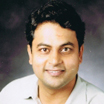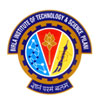- Home
- Announcements
- COMSNETS Schedule
- Technical Program
- Important Dates
- Call For Papers
- Submission Guidelines
- Camera Ready Instructions

- Organizing Committee
- Technical Program Committee
- Conference Inaugural Speaker
- Keynote Speakers
- Invited Speakers
- Banquet Speakers
- Mobile India Keynote Speakers
- Panels
- Conference Registration
- Workshops
- E6 Workshop
- Wisard Workshop
- NetHealth Workshop
- Mobile India 2012
- Student Travel Grants
- Best Student Paper Award
- Poster Session
- PhD forum
- Demos and Exhibits
- Patrons
- Sponsorship Opportunities
- Visa & Travel
- VISA
- Lodging / Travel
- Contact Us
- COMSNETS Association
- Archive
Keynote Speakers
- Balaji Prabhakar, Professor of Computer Science and Electrical Engineering Stanford University
- George Varghese, UCSD and Yahoo! Research
It pays to do the right thing:
Incentive mechanisms for Societal Networks
Speaker : Balaji Prabhakar,
Professor of Computer Science and Electrical Engineering
Stanford University
Abstract
- Why does glue not stick to the inside of the bottle?
- Why is lemonade made with artificial flavor but dishwashing liquid made with real lemons?
- How can I avoid traffic jams and be paid for it?
While the first two are some of life's enduring questions, the third is the subject
of a traffic decongestion project at Stanford University.
In this talk, we will briefly describe this project and, more generally, discuss
incentive mechanisms for "Societal Networks" such as transportation, energy,
healthcare and waste management networks. I will talk about incentive mechanisms and
experiments for reducing road congestion, pollution and energy use, and for
improving "wellness" and recycling. Some salient themes are the use of low-cost
sensing technology to make Societal Networks much more efficient and the use
incentives to co-ordinate individual behavior.
About Speaker :
Balaji Prabhakar is Professor of Electrical Engineering and Co mputer Science at
Stanford University. His research interests are in computer networks; notably, in
designing algorithms for the Internet and for Data Centers. Recently, he has been
interested in Societal Networks: networks vital for society's functioning, such as
transportation, healthcare, electricity and recycling systems. He has been involved
in developing and deploying incentive mechanisms to move commuters to off-peak times
so that congestion, fuel and pollution costs are reduced.
mputer Science at
Stanford University. His research interests are in computer networks; notably, in
designing algorithms for the Internet and for Data Centers. Recently, he has been
interested in Societal Networks: networks vital for society's functioning, such as
transportation, healthcare, electricity and recycling systems. He has been involved
in developing and deploying incentive mechanisms to move commuters to off-peak times
so that congestion, fuel and pollution costs are reduced.
He has been a Terman Fellow at Stanford University, a Fellow of the Alfred P. Sloan Foundation and a Fellow of the IEEE. He has received the CAREER award from the U.S. National Science Foundation, the Erlang Prize from the INFORMS Applied Probability Society, the Rollo Davidson Prize from the University of Cambridge, and delivered the Lunteren Lectures. He is a co-recipient of several best paper awards.
The Future of Network Algorithmics?
Speaker: George Varghese, UCSD and Yahoo! Research
I use the phrase "network algorithmics" to denote the study of network
bottlenecks that must be implemented at high (say gigabit) speeds
using a multidisciplinary approach that involves algorithms, hardware design
and attention to overall system issues. Network algorithmics has
successfully tackled issues such as IP lookup, packet classification, and
simple QoS functions --- to the extent that vendors regard these as "solved problems".
However, while speed and scale are reasonably handled by modern Internet,
routers, both flexibility and the ability to do fine-scale measurement at small cost remains elusive. From a bottom-up perspective as well,
the number of gates available on modern router ASICs and the
need to avoid commoditization are making vendors consider adding new functionality.
In this talk I consider two new functions we have done some initial work on using the principles of network algorithmics.
First, I will describe our Kangaroo system for flexible, wire-speed
packet parsing, While many vendors espouse network processors for
flexible router processing, they still use fixed parsers which limit
flexibility. Our system introduces some new
concepts such as lookahead parsing using CAMs and new measures of
parsing speed. Second, I will describe an algorithm called the Lossy
Difference Aggregator that
provides an inexpensive technique for measuring the average and
variance of packet latencies and loss on a link. By contrast, the
majority of routers have no support for fine-grained latency
measurement; managers must instead rely on approximate methods such as
sending probe packets or using "tomographic" techniques. I will briefly
allude to other directions we have investigated as well such as measuring
bandwidth at fine time scales. I will also speculate that there are
a number of future problems that can be tackled using the techniques
of network algorithmics.
About Speaker:
George Varghese obtained his Ph.D in 1992 from MIT. He join ed UCSD in
ed UCSD in
1999, where he currently is a professor of computer science. He was
elected to be a Fellow of the Association for Computing Machinery (ACM) in 2002.
Several of the algorithms he has helped invent (Deficit Round Robin,
IP lookups, Timing Wheels are extensively used in commercial products)
He wrote a book on building fast router and endnode implementations
called "Network Algorithmics", which was published in December 2004 by
Morgan-Kaufman. In May 2004, he co-founded NetSift Inc. which was
acquired by Cisco Systems in 2005. He has been the Distinguished
Visitor in the Computer Science department at Stanford University
for the academic year 2010-2011.
| Patrons | |||||
 |
 |
 |
|||
| |
|||||
 |
 |
 |
|||
| |
 |
|
|||
 |
 |
 |
|||








